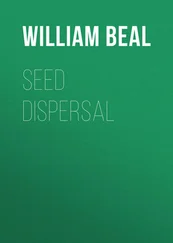“I hoped you would join me in a glass of sherry before you retire,” she said.
I reminded myself that she appreciated company, although she seldom said as much. “Sure,” I replied.
“If you’d care to pour.”
I followed her suggestion, then sat down. The windows were open, and the cool evening air freshened the homey little room.
“ A votre santé ,” said Mrs. Stoppini, offering her glass to be clinked.
“Cheers.”
“The late professor used to say,” Mrs. Stoppini mused, “that properly prepared food and things like caffè macchiato and sherry make us civilized.”
“You must miss him a lot.”
She looked down into her glass and said nothing.
“Sorry. That was a stupid thing to say.”
“Not at all, Mr. Havelock. You are quite right, of course.”
“He certainly was a scholar,” I said lamely. “I’ve had a chance to take a closer look at parts of his collection.”
“He was indeed,” Mrs. Stoppini said wistfully. “A true scholar is a rare thing in today’s world. One sees…” She didn’t complete her thought.
“I was wondering if it would be all right if I-and Raphaella-read a few of the books in the library. Especially the ones the professor wrote.”
“Provided nothing is removed from the library, I cannot think of an objection.”
I wished my mother was there. I was dying-wrong word- eager to dig more information about the prof from Mrs. Stoppini, but I was no good at wording questions that would tease out facts the way Mom could. So far, Mrs. Stoppini had volunteered almost nothing about the prof, but I knew there was something strange about the circumstances surrounding his death. All she had said was that he had become more private-almost paranoid it seemed-especially about his work, which he kept from her. I had concluded that the manuscript titled Fanatic was what had occupied him.
But why be secretive about it? He was a professor of Italian Renaissance studies. In the library there were lots of books on the period. He had written a few. Fanatic was probably one more. What was there about that book that demanded secrecy?
Raphaella and I now had permission to try and find out.
“Interesting book?” I asked, nodding at the volume Mrs. Stoppini had been reading when I came into the sitting room.
“Enough to pass the time, that is all.”
She didn’t mention the title. Why was I not surprised?
I HAD BROUGHT a novel with me, but with all the drama of the last couple of days I had forgotten that I was almost finished it, and not long after I had settled into the chair by the guest-room window on the second floor I closed Captain Alatriste and set it down. It was eleven o’clock, but I wasn’t sleepy. I looked out the window across the yard. The rain had stopped and the clouds had broken up, revealing a few stars and allowing moonlight to form patterns on the lawn.
Mrs. Stoppini’s door was still ajar and her light was on when I slipped along the corridor to the stairs, barefoot, wearing only pajama bottoms. The downstairs hall was shadowy, but enough moonlight came through the windows of the front foyer that I made my way easily along the hall to the library without turning on the light. I found myself thinking about Mrs. Stoppini’s irrational attitude to the place. She had respected the professor’s wish for privacy while he was working-and even that seemed a little extreme, but what did I know?-but with him gone, what difference did it make if she left the doors open and went in and out as she pleased? She was a reader-the bookshelves in her sitting room made that clear. Why avoid the library? Her behaviour when I showed her the secret cupboard was extreme. She was afraid of the place.
To her, the library was taboo. But why? Was it because her companion had died there? Or was there more? I couldn’t fully understand her reaction to the room any more than I could make sense of my own.
I rolled the doors aside and stepped in, reaching for the light switch-and froze.
The acrid stink of stale smoke, burnt paper, and singed cloth and rotten wood hung in the air. Maybe Mrs. Stoppini had lit a small fire in her bedroom for comfort, and the smoke had curled over the roof, pushed into the library by the night breeze. No, her windows had been open, the fireplace cold. Besides, I had closed and locked the casements in the library earlier, hadn’t I?
On the other side of the room something stirred. In the far corner, the table and chair by the window, as well as a section of books and a patch of floor, were brushed with moonlight.
Thoughts flitted across my mind like bats. Whatever had caught my eye could have drifted past the window on the outside of the house. Or it could be with me, here in the room. I took a breath and slapped at the switch, flooding the room with light and dissolving the shadows.
There was no one there. I saw no trace of smoke, but the smell remained. Curbing my uneasiness, I walked quickly to the window. It was closed and locked. So much for my theory about the source of the smoke. I looked out, but the brightness behind me made it difficult to see anything in the yard except shadows cast by tree branches shifting randomly with the wind. Probably a moving shadow was what I had seen. I took a deep breath and let it out slowly, willing my heart to slow down.
I went over to the fireplace. The hearth was cold, its tiles swept clean, just as I had left it. I made a slow circuit of the room, sniffing like a spaniel as I went, and detected nothing that could have produced the odour of smoke.
“Smarten up, Garnet,” I said out loud. “It’s your imagination again.”
When I got to the section of shelves that held the professor’s fiction collection, I stopped and forced myself not to rush, to scan the titles slowly. I selected The Name of the Rose only because I had heard of it somewhere.
Before I left the library, I turned out the light and walked back to the window. I stood for a few minutes, looking out across the yard. The gardens, the trees, the patio furniture were all silvered by the moon, and bright lines rippled on the surface of the lake. At the shore the willows stood in pools of darkness cast by their drooping branches. Between two willows, visible against the lighter backdrop of the lake, stood a human figure wearing an ankle-length hooded cape.
A figure that cast no shadow.
Only his outline was visible. A silhouette the size and shape of a smaller-than-average man standing as still as the earth, facing the window where I stood.
I knew who it was.
I dashed out of the library and through the kitchen and into the yard. The patio stones were cold and damp on my bare feet, the grass cool and dewy. I made my way along the edge of the flower garden and stopped at the corner of the house, my irrational burst of courage pouring away like water through a grate. I saw nothing on the shore. I craned my neck around the house, my cheek brushing the cold stone. Shades streaked the moonlit ground, criss-crossed by the shadows of branches. A light wind whispered. The lake murmured. There was a faint smell of smoke.
I stood in Mrs. Stoppini’s flower bed, the damp earth pushing between my toes, the novel still in my hand.

I RINSED MY FEET in the kitchen sink, feeling foolish and terror-struck at the same time. After checking the deadbolt for the fourth time, I crept back upstairs. Mrs. Stoppini’s door was closed, the corridor a tunnel of darkness. I went into my room and shut the door behind me without turning on the light. I pulled on a T-shirt, then padded over to the window, keeping to one side, and peered around the curtain.
Читать дальше













